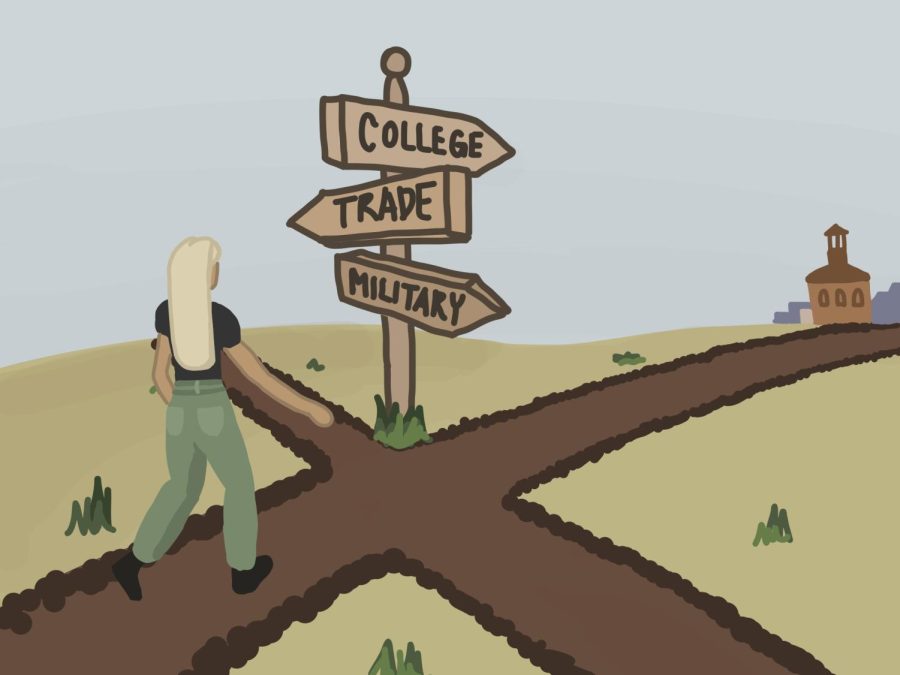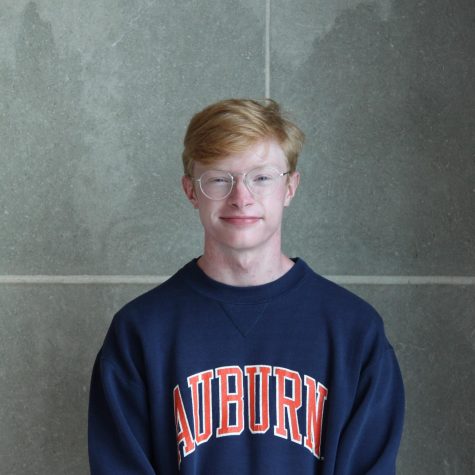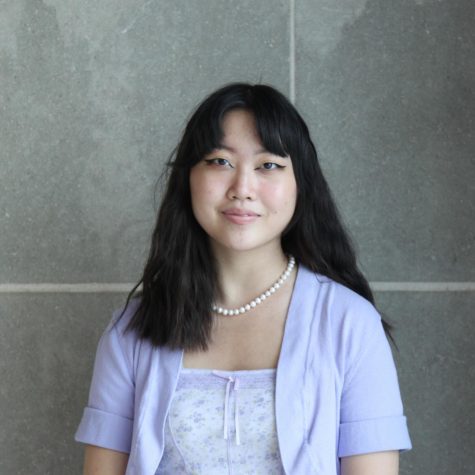Opinion: Let’s stop telling kids that college is the only option
April 28, 2022
For many, deciding what to do after high school is a pretty daunting task. Accounting for finances and determining where to go when senior year ends are just a few of the many roadblocks that stand between the typical senior and the rest of their lives.
As a recently enlisted recruit for the US Navy, I’ve had experiences that have given me a very unique perspective on the process of planning what comes next. I’ve come to realize that all of the post-secondary options 12th graders have do not receive the same amount of attention when being presented to students. When I began to take stock of the sentiment regarding trade schools and the military, the message became very clear: college is the goal, everything else is a fallback.
When I first heard that our SOAR periods would be used to help us explore and understand post-secondary options, I was pretty excited. “Maybe we’ll finally get to see what all the options are,” I said to myself. I was wrong.
Since the beginning of SOAR, we have used one of our homeroom periods towards post-secondary options. Not only was there no mention of the military, but the day’s program was centered entirely around taking out student loans.
For people looking into trades, the current system is equally problematic.
“I want to try and get into a career in carpentry,” senior Alexander Raymundo said. “I’ve always had college in the back of my mind, but I always thought about going into something non-traditional.”
At first, researching training for this career may seem like a fairly reasonable task, but that’s not the case.
“It’s kind of like teaching a kid to swim, you know?” Raymundo said. “You can either hold them up and let them doggy paddle or you can toss them in. I definitely tried to get help, but I didn’t really get much.”
Student services seems to be a major source of this confusion.
“I mentioned it to my counselor, and he said he’d keep an eye out and he would keep me updated or tell me anything he could find,” Raymundo said. “I got absolutely squat.”
For students who aren’t looking to go through the typical college pipeline, gathering information and making decisions tends to place you at odds with the system that has been established at Central.
“It’s just a straight up lack of information,” Raymundo said. “ I shouldn’t have to go through extra effort to get the information and help I need, when you’re basically spoon feeding it to everybody that’s going to college.”
NCHS also boasts its very own college and career center, but it lacks information regarding options other than college.
“[My counselor] took me down to like the College and Career Center, and we asked the lady down there and I got an email full of like schools that have stuff for woodworking, but they were all still colleges.” Raymundo said. “I appreciate the help, but it’s not really the help I need.”
Central is ultimately responsible for helping students work towards futures that benefit and fulfill them. Without access to all the information, college very quickly begins to feel like the only option.
In the future I hope to see a system implemented that allows students to understand that there are other ways to succeed in the world, beyond the scope of universities, student loans and less than practical degrees.
We all have the right to know what all the options are, and Central’s current system of information simply doesn’t cut it.









